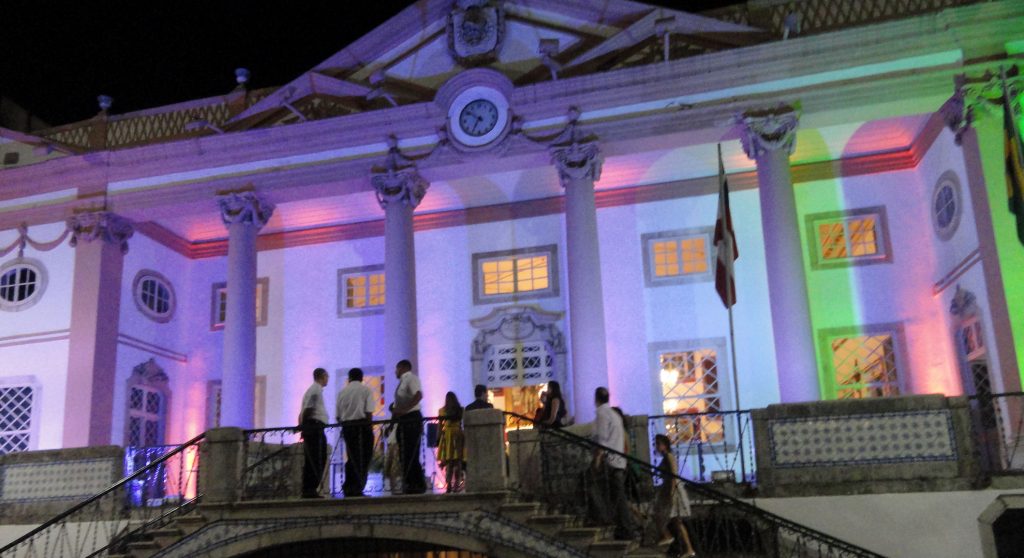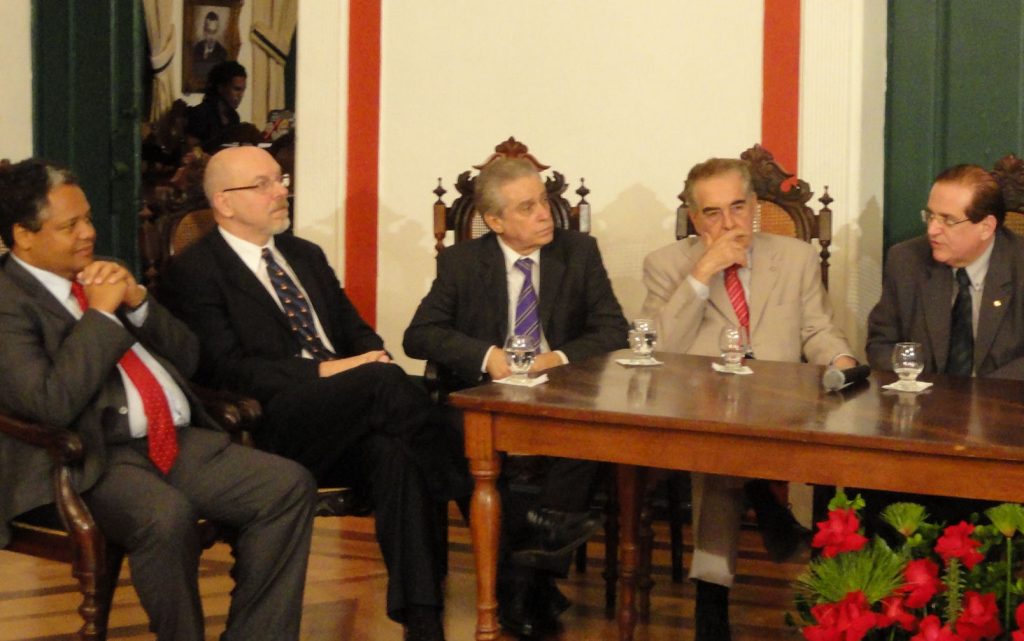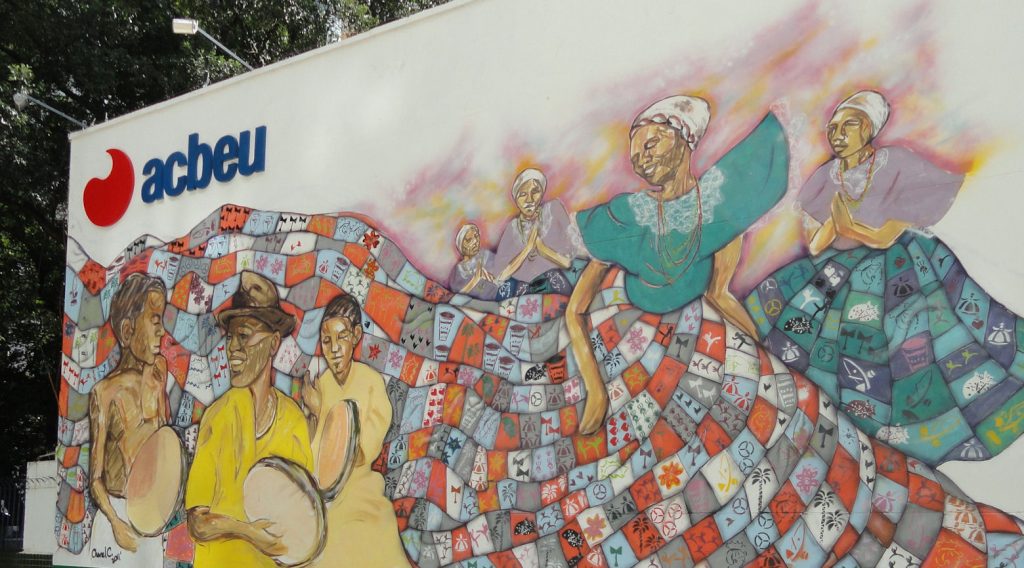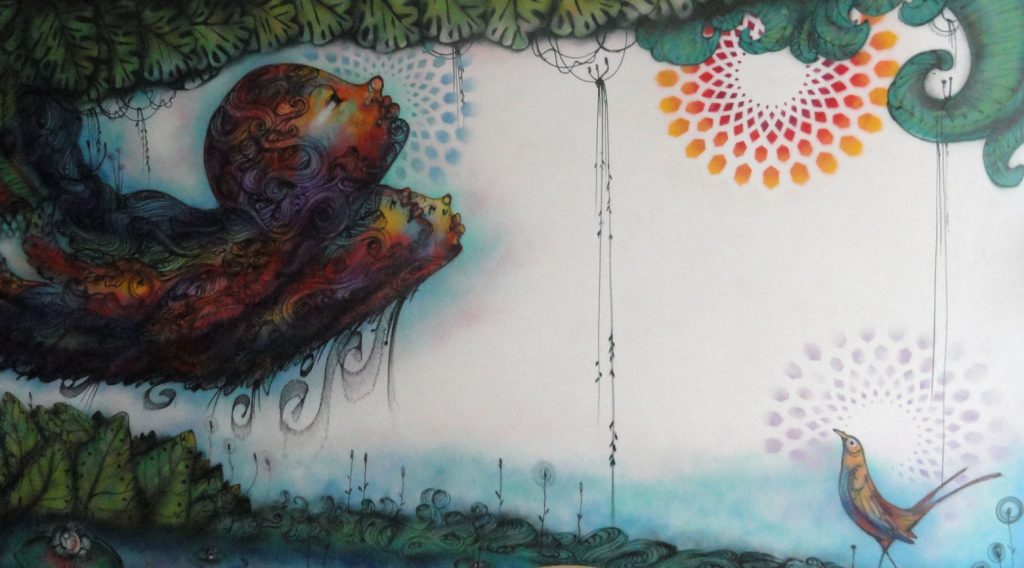
Our BNC in Salvador, ACBEU, celebrated its seventieth anniversary. It was founded when much of the world was already at war and only months before the United States would be dragged too. The context is not coincidental. The founders understood the need for the two greatest nations of the Western Hemisphere to come together in the face of all of this rising sea of trouble. They wanted to make their contribution.

I say “our” BNC. The accuracy of the usage depends on what you mean by the word “our.” It is certainly “our” in the sense of U.S.-Brazil and it is our in the sense of the U.S. government representing the U.S. nation. We helped. But it is mostly theirs. It belongs to the people of Salvador, who over generations have built ACBEU to the institution it has become. The thing that impressed me most about ACBEU, what has impressed me about all the BNCs I have visited, is the depth of community involvement. There are people who have been involved with this BNC for two generations. The son of one of the founders spoke at the anniversary celebration and around the room were leading members of the Salvador community.

I talked to a guy about my age who runs a charity that helps a thousand poor kids with education, medical care and general direction. He proudly told me that he had been a student at ACBEU many years before and that it has helped shape his life. This is an example of a long term impact. The Chairman of ACBEU Board estimated that they have around 420,000 alumni, many like the man I mentioned above doing important work in Salvador.

ACBEU has around 6000 students this year. It is the usual BNC mix, with mostly young people but also adults and professional students. ACBEU supports an EducationUSA advising center; they have strong partnerships with local businesses and governments and the reach out to the community, giving poor kids scholarships and holding some classes in the poor neighborhoods. These are all great things that most BNCs do. An unusual aspect of ACBEU was its American student contingent.
ACBEU hosts around three-hundred Americans each year who come to learn or perfect their Portuguese. We talk a lot about two-way exchange, but it more often is Brazilians going to the U.S. Brazil is a great country and getting more important all the time. We need to develop a bigger group of Americans who understand this country, its language and customs. These students mostly come through linkages with American universities. American students want to come to Bahia and the cultural experience is great.
We also met one of our ELFs – English Language Fellows. This particular ELF, Jennifer, is housed at ACBEU. Among the things she does train high school English teachers, obviously another high-leverage activity since they will in turn train thousands of kids. We are trying to expand this program in Brazil to help satisfy the seemingly inexhaustible demand for English language. We currently have only two in the country: one in Recife and the one in Salvador that we met. But next year we should get four more funded by ECA and another one funded by the public affairs. In addition, the Secretary of Education in the state of Pernambuco wants five more ELFs and he says that he will pay for with his own funds. ELFs have always been hosted by local partners, but I don’t think this type of full cost-share has ever happened before and it is certainly the first time in Brazil that we have had that kind of partnership. Our English Language Officer in São Paulo is figuring out the details. You always know when somebody really wants want something when they put their time and/or money up.
ELFs are is a great way to reach young Brazilians, a high leverage activity, since we are helping them get what they want and we get a self-selecting group of highly motivated people, who are likely to be influential in the future.
I have marveled at how easy it is to work in Brazil. It is because of these programs implemented over many years that we can so easily do our business in this country. The polling data give us their ephemeral numbers of how many like us and how many don’t. Currently we are well-liked in Brazil, according to the polls. I read polls and I pay attention to them, but I understand their limits. People have opinions that they report and they have things that they do; these are often not closely related. I know that through good times and bad times, we have friends.
The top picture shows Associação Comercial Bahia. Below that is me at the commemoration trying to look good. The next two pictures show murals at ACBEU. They have an art gallery space. New artists can show their work there. There is no money charged, but the artists have to leave a work of art at ACBEU.
